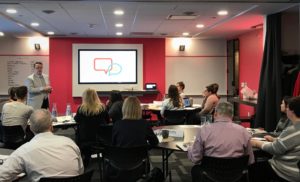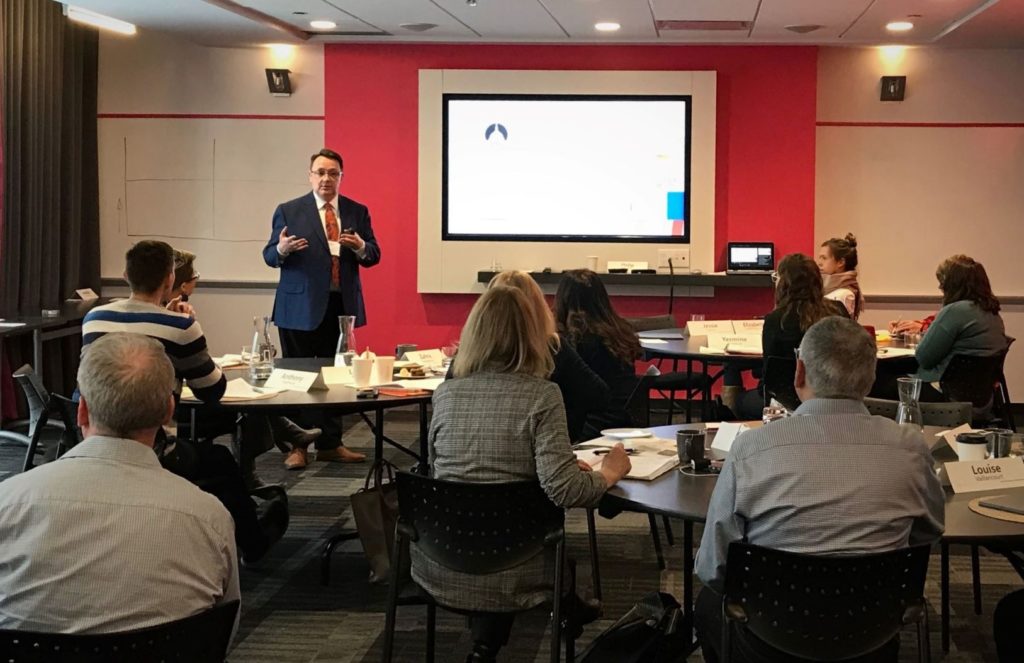 Six months into a three-year initiative to address skills gaps and labour mismatches, the Future Skills Framework project has been actively gathering and analyzing information to pinpoint the current and emerging competencies Canada’s tourism sector needs to be globally competitive.
Six months into a three-year initiative to address skills gaps and labour mismatches, the Future Skills Framework project has been actively gathering and analyzing information to pinpoint the current and emerging competencies Canada’s tourism sector needs to be globally competitive.
While many essential skills remain core to a successful tourism career, professionals must also continually strive to master rapidly changing technologies and be responsive to new demands from growing markets. Jobs have become more fluid; skills once the domain of one occupation are now needed by many.
To keep Canada ahead of the curve, the Future Skills team is consulting with a wide variety of tourism stakeholders. Their feedback will ensure the resulting Future Skills Competency Framework provides employers, employees, educators, students, and governments with a thorough, accessible, customizable tool to manage workforce development.
Several groups have shared their expertise, with many more events to come. Here’s a summary, followed by links to get involved:
International Indigenous Tourism Conference (October): At the inaugural session in Saskatoon, Indigenous tourism operators identified the unique skills and specific knowledge required for success in Canada’s rapidly expanding Indigenous tourism landscape. This feedback will inform policies and programs and demonstrate the acute need to fund an Indigenous Tourism Labour Market Strategy.
Tourism Industry Association of Nova Scotia’s Tourism Summit (November): Tourism business owners from across Atlantic Canada gathered in Halifax to pinpoint emerging skills and regional HR issues, such as the seasonality of many tourism operations.
Job and Work Analyst Training (January): Tourism HR Canada is now in the midst of facilitating training for consultants and other sectoral organizations. Earlier this month in Ottawa, President and CEO Philip Mondor guided participants through the nine steps of setting a national occupational standard. A second event will be held at the end of January, looking at methodologies for competency writing, facilitation, and job analysis. These skills will guide the individuals analyzing the intelligence collected at the consultation events.
Hotel Association of Canada Conference (February): A breakout session, Defining the Future of Tourism Skills, will see delegates discuss worsening labour shortages and the risks of skills mismatches and employment gaps not being addressed. This will lead into exploring how a competency framework will help better understand the skills and competencies employers are looking for and assist job seekers in identifying the skills they have and how they relate to specific employment opportunities.
Tourism HR Canada has spent 25 years developing a robust library of competencies; dozens of Emerit National Occupational Standards outline the skills, knowledge, and attitudes needed for specific professions, from Food and Beverage Server to Travel Counsellor to Hotel General Manager. Along with the feedback from tourism stakeholders, the Future Skills team is mapping these and numerous international standards and competency frameworks to establish a flexible, forward-looking framework that will set the standard for proficient and effective performance.
Tourism professionals and other stakeholders interested in contributing to this groundbreaking project are invited to join the National Advisory Committee and the Content Advisory Panel.
You can also contact futureskills@tourismhr.ca to join one of over 20 focus groups to be held over the coming year. What are your expectations for tourism employees? How do you define skilled labour? Your input will be invaluable to ensuring the framework fully reflects the needs of all tourism stakeholders.

